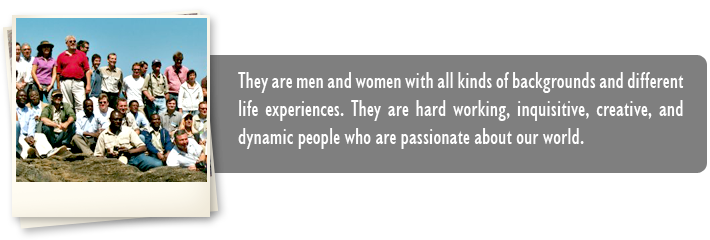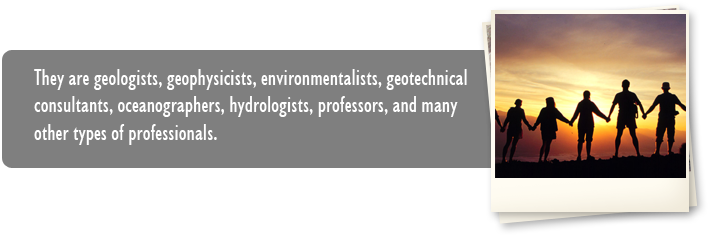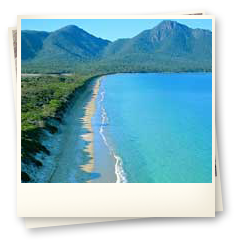

That's because Earth science is the study of the Earth and all its materials. It aims to understand our planet's many different systems, what it produces and reworks, and how humans are connected to its natural cycles and resources.
Earth scientists are the people who do all of this and more! They work to solve the puzzles of the planet - they are detectives of the world and our connection to it.

They may have been trained at university, college, or technical school or through life experience. They work as explorers for new mineral and hydrocarbon resources, consultants on engineering or environmental problems, researchers for universities, government, and industry, teachers of all things science, writers and editors for scientific journals, websites and books, museum curators, and much more!


Surveying terrain, describing the environment, observing nature, creating maps, sampling rock, soil, water, fossils, sediment and plants, recording real-time data, measuring water quality, performing environmental assessments, and evaluating slope stability. This work may be done on ships at sea, with helicopters and small planes, on ATV's, skidoos, horses, and even with dog-sleds. You might stay in tents in forests, camps in mountains, bunks on boats, huts in jungles, cabins on beaches, dorms in universities, or hotels in cities.

Using a microscope to evaluate geologic specimens, analyzing rock and sediment cores taken from the Earth, conducting chemical experiments, analyzing water quality, building models to run tests, identifying and preserving fossil samples, using sophisticated equipment to determine the age of ancient organisms and plants, and breaking apart the different elements of mineral deposits in rocks.

Interpreting maps, analyzing laboratory results and field data, reconstructing ancient environments using fossil data, forecasting future sites of interest, managing budgets, meeting with clients and other professionals, developing new software and technologies, researching specific topics and writing papers, creating posters, preparing presentations, evaluating new ideas, applying material learned in school, understanding the scientific method and applying it to solve geological problems.

Travelling to other countries to share research and ideas with others, providing training and assistance in developing countries to help them upgrade their skills and capabilities, attending workshops to learn new ideas, exploring remote and wild places to take samples, measurements, and photographs to be analyzed back at the workplace. Canadians are well known and well respected across the globe for their contributions to Earth science.